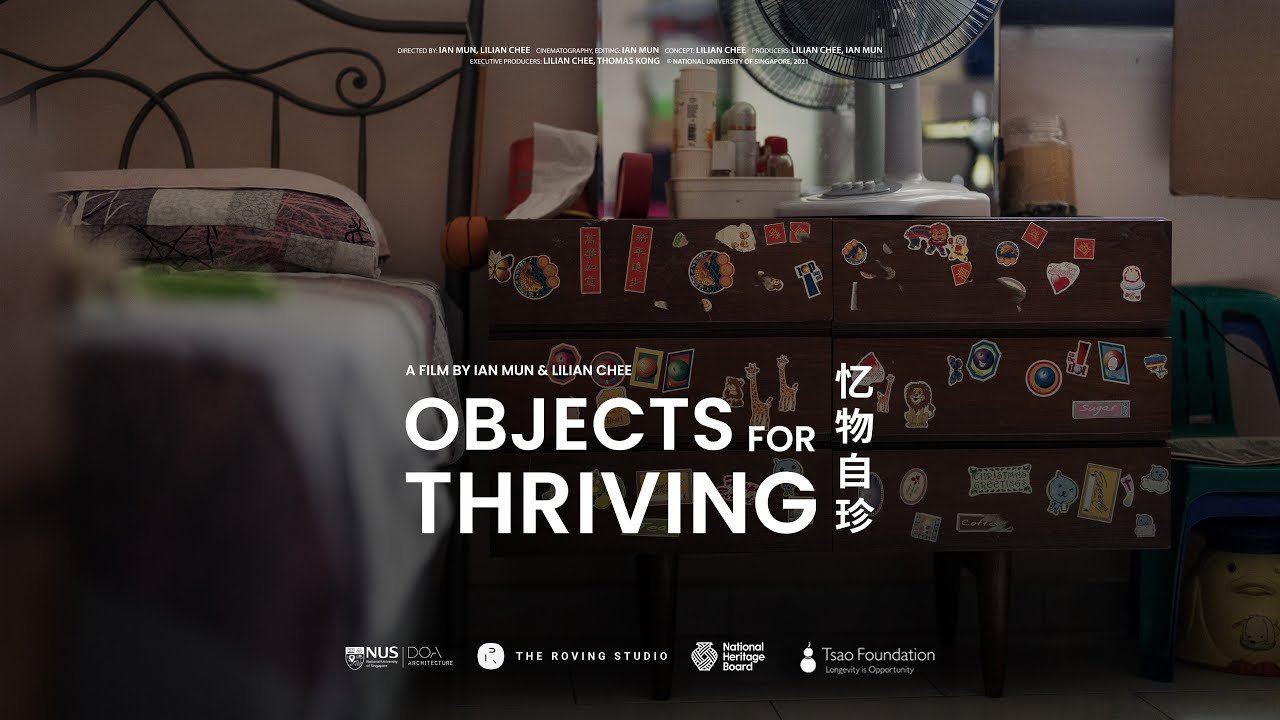
LSA 2022 in Lisbon, Portugal | Conference Panel: Menstruation, Health, and the Law
CSSD working group members to will participate in LSA in Lisbon in July 2022 in a panel on Menstruation, Health, and the Law

Barbara Penner participates in the London Festival of Architecture on “The Fireless Cooker”
From market stalls to the hammer, protest placards to festivals, the third edition of 30 Objects in 30 Days brings together a wonderful collection of individuals and objects as part of LFA 2022. We are asking 30 key figures in the industry to nominate an 'object' that they feel best represents this year’s festival theme of ‘act’ and ‘architecture’ and share a video explaining why. For Barbara's selection she has chosen the fireless cooker. Barbara Penner is Professor in Architectural Humanities at the Bartlett School of Architecture, UCL.
Media: https://www.youtube.com/watch?v=i10wkTQ7dgk&ab_channel=LondonFestivalofArchitecture
Organizers: London Festival of Architecture
Working Group Affiliation: Insurgent Domesticities

Columbia Global Center in Mumbai, India Hosts CSSD Working Group "Menstrual Health and Gender Justice
CGC | Mumbai organized a workshop on “Critical Menstruation Studies: Strengthening Interdisciplinary Research” in Mumbai, India

Imagine Repair: Exhibition Opening & Performances at the Cathedral of St. John the Divine
The opening events of IMAGINE REPAIR include performances and presentations by Alicia Grullon, Marie Howe, Fred Moten, Amyra Léon, Rev. Juan Carlos Ruiz, George Emilio Sanchez and Noni Carter with workshop participants, and a concert by Reverend Billy and the Stop Shopping Choir.


Save the Date: Participatory Reparative Memory
Virtual Roundtable featuring artists Maria José Contreras, Raphael Lozano-Hemmer, and Kamau Ware.

george emilio sanchez: In the Court of the Conqueror
A solo performance by george emilio sanchez that delves into how U.S. courts have diminished the Tribal Sovereignty of Native Nations.

The Cunning of Gender Violence: Geopolitics and Feminism
This seminar is based on the findings of a three-year collaborative research project between feminist scholars of the Middle East and South Asia that explored these questions across a range of intersecting local, national, and global contexts, in the process uncovering the ways in which religion and racialized ethnicity, particularly “the Muslim question,” run deeply through the international governance structures of GBVAW, even when insistently disavowed.

How to Improve Women's Heart Health: Lessons from the US and China
In celebration of American Heart Month, the Columbia Global Centers | Beijing and the Women Creating Change initiative of the Center for the Study of Social Difference at Columbia University invite you to join us on February 23rd for a webinar

"Why Do We Use Zip Codes?"
Public Zoom Roundtable with Gregg Gonsalves, Laura Kurgan, Bill Rankin, Jia Zhang, Jacqueline D. Wernimont and Laura Wexler.

Reconstructing History in Brazil's Favelas and India's Zhopdis
A Música - Repertório de Viagens | An event with Silvio Luiz de Almeida + MC Carol.

Lilian Chee releases trailer for upcoming film Objects for Thriving, in collaboration with Ian Mun
Objects for Thriving (2022) fleshes out the complexity of lived worlds in ordinary domestic objects. It focuses on the capacity of such objects to behave as affective mediators and repositories of experiences and events. A Butterfly sewing machine, a granite pestle and mortar set, and household talismans and altars, are equally ordinary and extraordinary. The setting for each object—within a domestic space–changes the nature of how these are perceived. They are involved in identity formations, ritual continuity, meaning making. As instruments embodying histories (personal, social, cultural), they are ordinary forms of heritage which continue to evolve and to matter in the everyday. They are instruments for living, or what we term ‘objects for thriving.’
The short documentary is an observational and essayistic document where research findings take on an unusual and organic form of discovery and semi-enactment, made in tandem with the participants who revisit the objects which they deem important. The meaning(s) in video-documentation are ‘emic’; they are not predetermined but emanate from the encounters between filmed subjects and the filmmaker. These ideas of memory and heritage are thus co-created by the relationships between the filmed subject, the filmmakers and the difference audiences. It empowers participant identification and builds audience empathy. The objects enmesh protocols, systems and technologies of survival, belief and ideologies. The title—Objects for Thriving—alludes to the roles these objects play in giving independence, identity and expression to the elders who are their custodians
Media: https://www.lilianchee.com/film-objectsforthriving

Annapurna Garimella appears on podcast The Seen and the Unseen for an episode entitled “Objects Speak”
The world is what it is -- but no one knows what that is, and we all see different worlds. Designer and art historian Annapurna Garimella joins Amit Varma in episode 257 of The Seen and the Unseen to describe her passage of seeing, remembering, reflecting.
Organizers: The Seen and Unseen
Media: https://www.youtube.com/watch?v=dSjLonaPwHU&ab_channel=TheSeenandtheUnseen

Reconstructing History in Brazil's Favelas and India's Zhopdis
An event with Muniz Sodré (Universidade Federal do Rio de Janeiro) and Nijaz (Rapper, Conjunto da Maré).

Performances of Race and Historical Representation
Ladee Hubbard and Ana Paulina Lee will discuss how racial representations from the past bear on the present in historical narratives and the idea of science.

Akira Drake Rodriguez discusses new book Diverging Space for Deviants: The Politics of Atlanta’s Public Housing at Cornell AAP
In 1936, the City of Atlanta was the first U.S. city to open federally-financed and locally-administered public housing developments to low-income families in need of safe and sanitary housing (Techwood Homes). For the city's Black residents, and later, other marginalized groups, these developments provided political opportunity to assemble, mobilize, and make claims on the State in ways that were otherwise inaccessible. Over time, tenant associations served as conduits for working-class political interests centered in spatial justice – the very politics of planning that were used to segregate and marginalize developments and residents served as an organizing logic around spatial justice issues. However, in 2013, demolition began on one of the city's last public housing developments for low-income families, nearly two decades after Techwood Homes was demolished for the 1996 Olympics. This talk examines the historical role of public housing in working-class politics and how the loss of tenant associations in the city has deepened contemporary inequities.
Organized by: Cornell AAP (Architecture Art Planning)
Media: https://aap.cornell.edu/news-events/akira-drake-rodriguez-diverging-space-deviants-politics-atlantas-public-housing

The Art of Covid Memorials: When Memory, Meaning, and Mourning Are Deferred
A Symposium with James Young, Kristin Urquiza, and Karla Funderburk.

Samuel Hargress and the Music of Paris Blues: A Community Event
A concert in honor of Samuel Hargress, Jr. who opened the historic jazz club, “Paris Blues” on November 15, 1969.



CineBela | Sessão Kiriku
A film about a gifted newborn who knows how to talk, walk and run, and is also the savior of the village.

Live Performance | Mariana Maia
Multilingual artists and performers offer live performance experiences.

Reparative Memory
Virtual Roundtable: Reparative Memory
Featuring: Michael Arad, Susan Meiselas, Doris Salcedo, Hank Willis Thomas, Mabel Wilson
Moderated by Carol Becker

Reading Space | The Griot Child
An event in appreciation of everyday storytelling and its various techniques.

Neuroscience, Intergenerational Trauma, Race & Healing: The Impact of 2020
This special panel including Angelika Bammer (Emory), Raina Croff (Oregon), Evelynn M. Hammonds (Harvard), Sará King (Oregon), and Bianca Jones Marlin (Columbia) will focus on issues of inter-generational trauma, healing, neuroscience, and race.

Poetic Action - A Child’s Gaze
The activity aims to carry out artistic, poetic and reflective exercises with different audiences, inspired by the concept of “poetics of childhood” by Renato Noguera, Ação Poética.

Amefrican Connections | Against Epistemic Racism in Latin America and the Caribbean
This panel with Meyby Ugueto-Ponce, Sharún Gonzalez Matute, and Camila Daniel demystifies academic writing and unmasks the epistemic racism in Latin American universities.

Amefrican Connections | The Ancestral Territory Against Environmental Racism in Brazil
An event aimed at highlighting Black women perspectives and decolonizing the field of Latin American studies.

The Devouring of the World and the Climate Crisis
In this talk, the indigenous thinker and philosopher Ailton Krenak urges us to take seriously the value of the indigenous philosophies of the Americas when it comes to confronting the climate change crisis.

RECONSTRUCTING HISTORY IN BRAZIL'S FAVELAS AND INDIA'S ZHOPDIS: a conversation on music and migration
Join us via Zoom for this event in a series of workshops that will take place in 2021-2022 as part of the CSSD Geographies of Injustice working group's activities.




